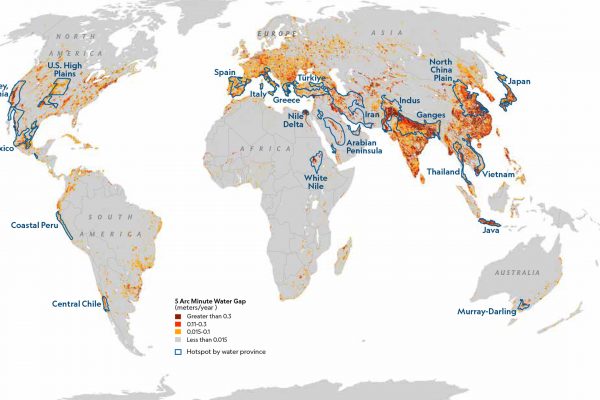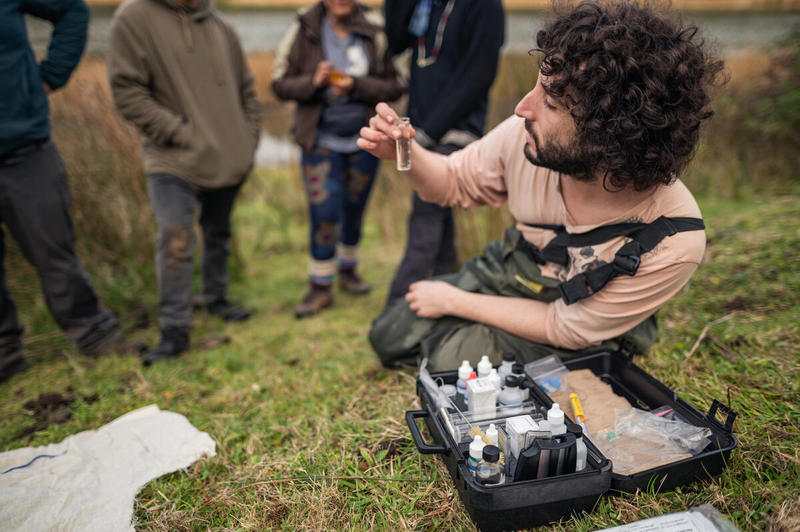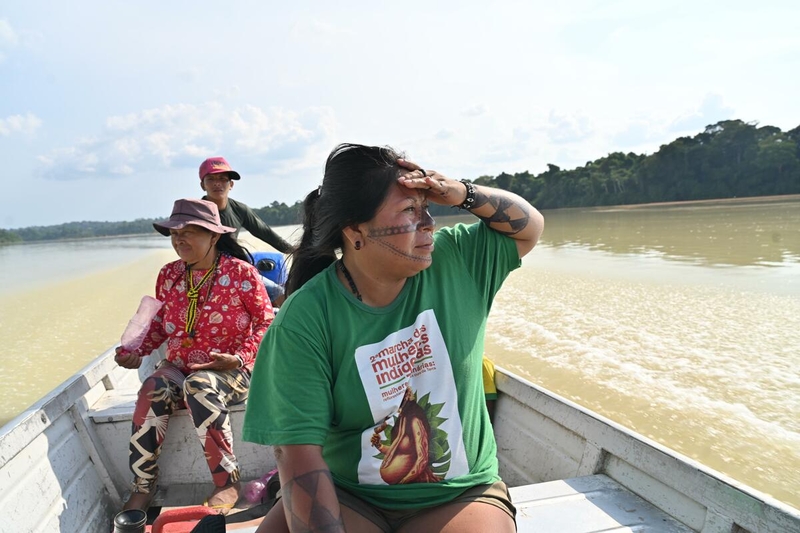Request for Proposals:
Freshwater Conservation
The National Geographic Society is seeking proposals for a funding opportunity, focused on Freshwater Conservation.
Pre-applications are now closed.
The Opportunity
Freshwater is essential to the functioning of our planet; it’s necessary to sustain healthy and biodiverse ecosystems, it’s inextricably linked to climate change, and humans depend on water to drink and grow crops and raise livestock. The World Water Map, which is part of the Society’s World Freshwater Initiative, visualizes areas of global water gaps. The global water gap Hotspots are regions where human demand for freshwater is outpacing renewable supplies. This leads to depletion of freshwater resources and the risk of water scarcity.
The goal of this RfP is to help highlight the real-life stories about water scarcity by funding on-the-ground, community-led conservation projects addressing freshwater scarcity challenges through impactful solutions.

Cartography credits: Martin Gamache for M Leijnse, M F P Bierkens, K H M Gommans, D Lin, B Droppers, A Tait and N Wanders.
Hotspot Locations
These grants are highly competitive and reserved for select projects located in one of the 20 Hotspots below. Priority will be given to applicants proposing projects in the areas that are underlined in the list, where historically the Society has funded fewer projects.
- Greece
- Turkey
- Saudi Arabia, Qatar, United Arab Emirates, Bahrain
- Italy
- Spain
- Central and South Thailand
- Ganges/Brahmaputra river basins, India/Bangladesh
- Mekong Delta, Vietnam
- Indus River Basin, Pakistan
- Java, Indonesia
- Murray-Darling Basin, Australia
- Japan
- North China Plain
- Central Chile
- Coastal Peru
- Mexico (various locations)
- Central Valley, California
- US High Plains (Ogallala Aquifer)
- Nile River Delta, Egypt
- White Nile, Sudan

Who Should Apply?
This opportunity is best suited for individual project leaders with demonstrable experience co-creating or collaborating with the community or communities that are most impacted by the freshwater scarcity issue and proposed conservation project. These grants are highly competitive and reserved for select projects located in one of the 20 water scarcity / water gap Hotspots, as defined by the modeled water gaps in the World Water Map. Interested applicants should review the FAQs for more information about the water gap Hotspots.
This funding opportunity is open to applicants over the age of 18, including individuals who are already National Geographic Explorers. Funding requests for this RfP can be up to USD $50,000. Projects can be up to two years in length.
Pre-Applications
The National Geographic Society is accepting pre-applications for the Freshwater Conservation RfP.
Pre-applications are due by March 25, 2024, 11:59pm EDT.
To ensure that invited applicants are prepared to submit competitive full applications, we recommend that applicants already understand — or are prepared to assemble — the methods, dissemination strategies, and proposed outputs of the full project. We also recommend that applicants are already collaborating with the community or communities that are most impacted by the freshwater scarcity issue and the proposed conservation project. Applicants who are invited to submit a full application will be requested to present evidence of local community participation, from start to finish, in the development and implementation of the project.
You may submit a proposal as the project leader for ONLY one project. We ONLY accept applications that are submitted through our online portal. Please do not mail or email your application.
